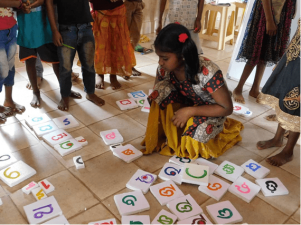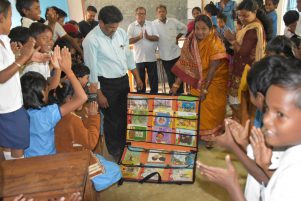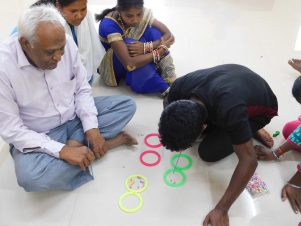- Education can bring a child and her family, out of economic and social misery, in one generation.
- Children from the underprivileged sections of the society, specially in rural areas, have the double disadvantages – lack of exposure that the upper middle class child in an elite school enjoys and learning environment at home and community level not conducive to school expectations.
- Once the children start taking responsibilities for their learning and start exploring the world around them, a limited guidance will be required by them to grow to their full potential.
- Right method of educational interventions at the early age would shape the foundation for building the better citizens of tomorrow.
- Education must be joyful and interesting, motivating students to seek knowledge.. Students must want to come to school.
- Learning can happen only in a fear-free environment.
- Discrimination, in all in its forms, must continually be identified and eliminated.
- Students and teachers should be trusted and empowered to do the right things.
- Education must be connected with the environment.
- We embrace Sri Aurobindo’s Principle of working “from the near to the far, from that which is to that which shall be”.
- Diversity is an important element of nature. Else there would be one fruit, one flower, in the world. The educated human is inclusive, and leverages diversity.
- The parent is the first teacher, and community influences the child as much as the school. Both parents and community are key stakeholders in education.
- We must address the Head, the Hands, and the Heart, while educating.
- Ethics and Love, Compassion and Brotherhood, Creating Purpose, and finding the passion to pursue it, are intrinsic to Education.
- Education must lead to Realisation of Purpose of Life and Its Passionate Pursuit.
- Education must address thinking, questioning, decision making, respect for diversity, building perspective, effective communication, and remove fear, prejudice and intolerance.
- Education must include sports, culture, arts, and awareness of the world around.
- We value simplicity over perfection, if simplicity helps that learning.
- The process of effective education includes many a failure. It is the educators’ job to push students to explore their limits, introspect, and learn. At the same time, they must provide a safety net in the rare case that things go really wrong.




